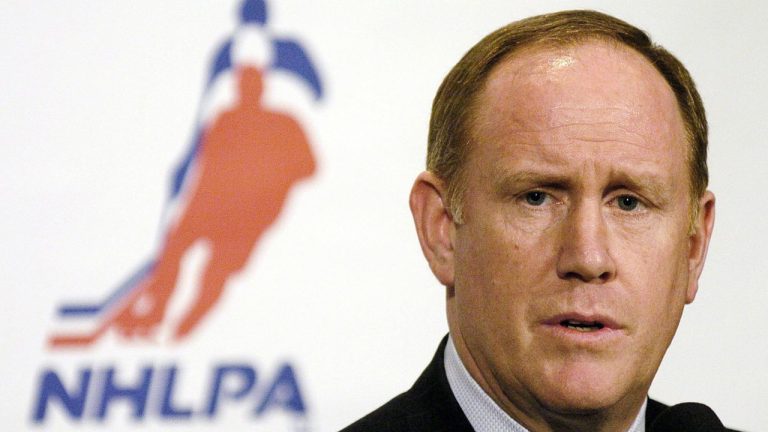Bob Goodenow, a significant figure in the National Hockey League Players' Association (NHLPA) and the legal advocate for hockey players' rights, passed away on Saturday at the age of 72, as announced by the NHLPA. His leadership was particularly notable during the tumultuous period of the 2004-05 NHL lockout, which had lasting effects on the structure of the league.
Under Goodenow's direction, the NHLPA successfully negotiated a resolution to the lockout on July 13, 2005. This agreement introduced key changes to the salary structure of the league, including the implementation of a salary cap, a salary floor, and an agreement ensuring that players would receive 54 percent of total NHL revenues. However, shortly after these negotiations concluded, Goodenow was asked to step down from his position as executive director and was succeeded by Ted Saskin.
Goodenow was a native of Dearborn, Michigan, and his tenure as the NHLPA's executive director spanned 13 years, from 1992 to 2005. He joined the players' association in 1990 as deputy executive director, quickly establishing himself as a formidable advocate for players' rights. His assertive approach to negotiations and dedication to improving the overall landscape for players were central to his legacy.
One of Goodenow’s early notable actions was leading a 10-day strike in 1992, just prior to the Stanley Cup Playoffs. This strike achieved several victories for the players, including increased playoff bonuses, modifications to free agency, and expanded licensing options. Goodenow was also instrumental during the 1994-95 NHL lockout, a 103-day standoff focused primarily on the players’ opposition to the introduction of a salary cap, highlighting his commitment to player advocacy.
Gary Bettman, the NHL commissioner, praised Goodenow in a statement, recognizing him as a "skilled attorney and tenacious advocate for the players." Bettman extended heartfelt condolences to Goodenow's family, including his wife, Wendy, and their three children: Joe, Katharine, and Kerry. Bettman's remarks underline the profound impact Goodenow had not only on the NHLPA but also on the broader hockey community.
In addition to his contributions off the ice, Goodenow had a distinguished playing career. He captained Harvard's men’s hockey team in the mid-1970s and represented Team USA in the World Championships in both 1974 and 1975. After his college career, Goodenow played for the Flint Generals in the International Hockey League (IHL) before turning his focus to law, enrolling in the University of Detroit Law School in 1979.
The NHLPA honored Goodenow's legacy by stating, "The modern NHLPA, and the work it has done to improve the quality of life for thousands of players past and present, is a direct result of the foundation that Bob Goodenow built." This statement reflects the lasting influence of his leadership and dedication to the players he represented.
Goodenow’s passing leaves a significant void in the world of professional hockey, as he was a key figure in shaping the modern landscape of the NHLPA and advocating for the rights of players. His efforts have undoubtedly paved the way for future generations of athletes in the sport.











